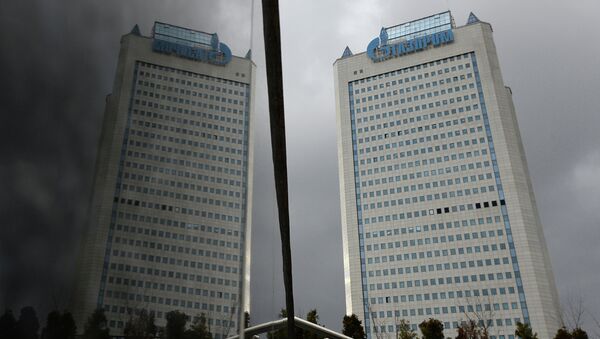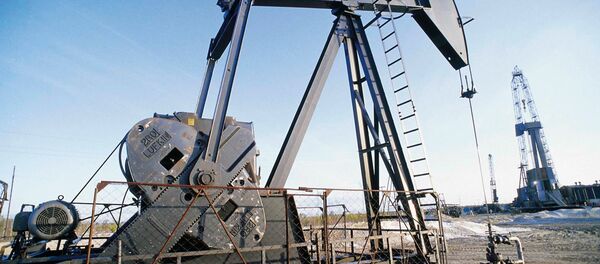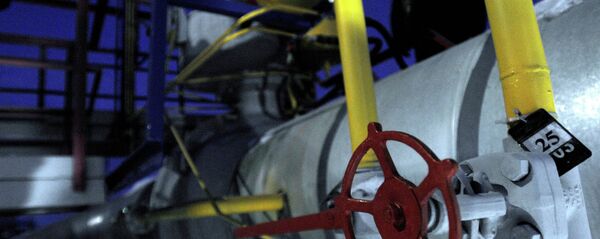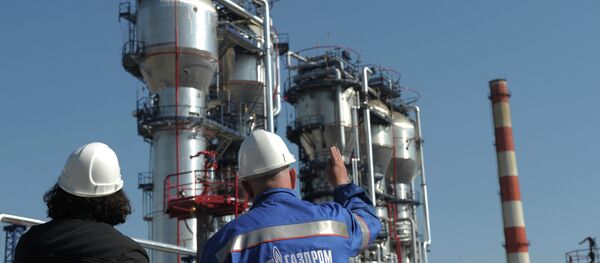“Life will show if [the model] is good or bad, but, undoubtedly, we see serious risks inherent in this model,” he said during an energy conference in Berlin.
Earlier in the day, Miller said state-owned Gazprom was ready to work with all models of energy security on the European market.
The safe transit of Russian gas has been a concern for Europe in light of the instability in Ukraine which is a transfer territory for Russia's gas supplies to EU consumers.
In December 2014, Moscow decided to cancel construction of the South Stream pipeline for delivery of Russian gas to Europe through the Black Sea. Russian President Vladimir Putin cited Brussels' counteraction as the reason behind the move.
The European Union receives about 30 percent of its oil and gas imports from Russia, according to European Commission data. Other large gas suppliers for Europe include Norway and Algeria.
Russia’s gas giant Gazprom may redirect surplus gas supplies to the Asian market if Europe does not require the current volume, Gazprom CEO said.
“Europe needs to give a concise and clear answer of whether it needs additional volume, if it needs a resource base or not,” Miller said during a conference in Berlin.
The Turkish Stream gas pipeline will be built on the principle of diversifying routes that will decrease the risk of gas transit, Alexei Miller said.
“The Turkish Stream model, which is being realized today, is built on different principles. This is not a model of interdependency; this is a model of diversifying transport routes,” Miller said at a conference in Berlin.
Miller said that Ukraine’s gas transit system is the “weakest link” in gas relations between Russia and the European Union.
“Ukraine’s gas transport system is a weak link, the weakest link that we have today in our mutual relations. Ukraine’s gas transport system is hiding within itself an incredibly high confrontational likelihood,” Miller said.
Currently, Ukraine is a transit country for about 40 percent of Russian gas delivered to European consumers, but Moscow has repeatedly voiced concerns over the reliability of safe gas transit via Ukrainian territory.
On December 1, 2014, Russia announced the start of construction of an offshore gas pipeline across the Black Sea to Turkey. The Turkish Stream pipeline will deliver Russian gas to South Europe through a transit hub on the Turkish-Greek border.
The announcement came after Russian President Vladimir Putin said that Russia was not willing to construct the South Stream gas pipeline, intended to go under the Black Sea from Russia to Europe, in light of European Commission’s “non-constructive” stance on the matter.
Russian energy giant Gazprom is ready to work with all existing and new models of energy security on the European market, Alexei Miller said.
“We will work with the models and rules of [European energy security] that exist and will emerge on the European market,” he said during an energy conference in Berlin.
The price for gas in the European Union will not be low if the European Commission insists on a single price for all EU consumers, Miller said.
“If we adhere to the fact that the European Commission wants the price [of gas] to be the same [across the board for all EU countries], then, as you may understand, it won’t be the lowest price of those that we deliver gas to the countries of the European Union. This will probably be a price near the highest,” Miller said at a conference in Berlin.
The Asian gas market will soon become the determining factor in pricing policy for the European market, Miller said.
“Undoubtedly, it must be understood that in the near future, the pricing policy for the European market will be the Asian market,” Miller added.
The main reason why the South Stream gas pipeline project was to retain the gas route through Ukraine, Gazprom CEO said.
“The only aim was to preserve the status quo, the transit via the territory of Ukraine. In reality, there was no other reason to block the South Stream,” he said.
Miller also dismissed “false reports” that the reason behind suspension of South Stream was Gazprom’s unwillingness to observe the rules of the third energy package and European laws.
Russia’s gas giant Gazprom is capable of doubling gas export volumes to Europe at “the flip of a switch,” Alexei Miller said Monday.
“Gazprom’s extraction capabilities today are at 617 billion cubic meters. The company’s extraction volume for 2014 was only at 444 billion [cubic meters]. What does that mean? It means that we can very simply, with the flip of a switch, double our volumes of export Russian gas to Europe,” Miller said at a conference in Berlin.





